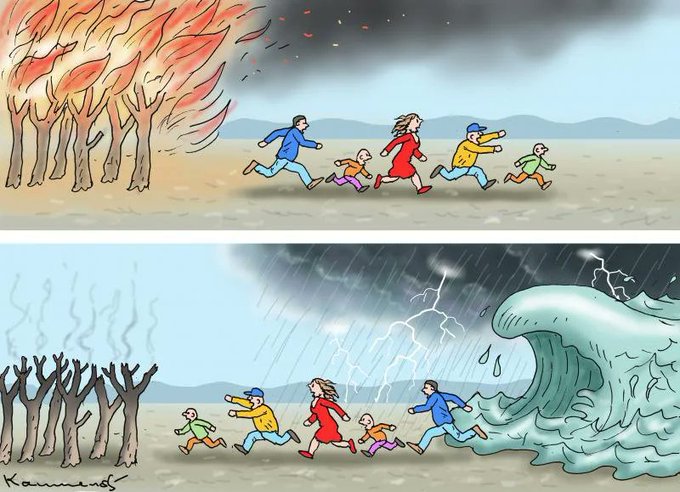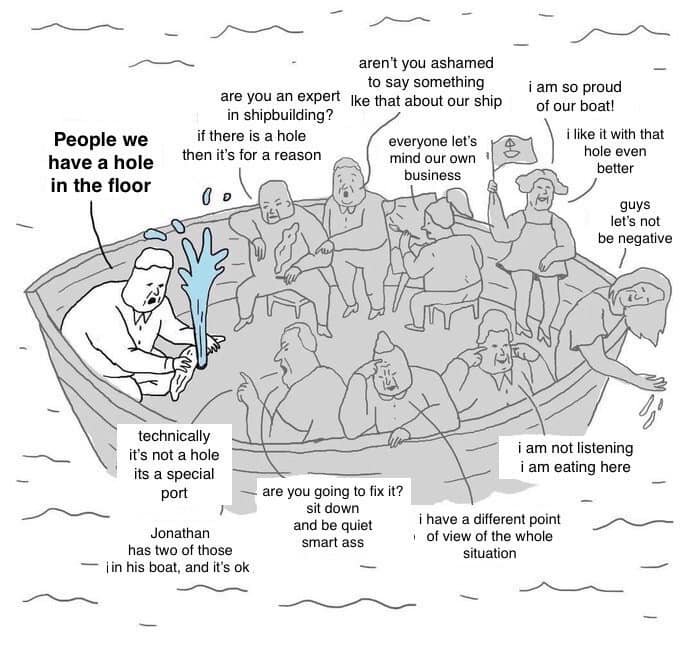One thing we can all now likely agree is that we have made a complete mess of our society, ecology and tech paths. The intertwining of #postmodernist social thinking and #neoliberal economic ideology over the past four decades has laid the groundwork for the turbulent state of contemporary politics and the social chaos evident in our digital ecosystems (#dotcons)
This marriage of ideologies led to a fracturing of political values and an obscuring of ideological divides, resulting in the polarization and dysfunction we witness in both right and left-wing politics. In the realm of technology, this has resulted in the proliferation of centralized platforms and the erosion of community.
“From the outset of the industrial revolution, what is nostalgically called “laissez-faire” was in fact a system of continuing state intervention to subsidize accumulation, guarantee privilege, and maintain work discipline.”
— Kevin Carson
For forty years, we’ve marched down this dark path, “unwittingly” shaping the current “human nature” through the failed dogmatic #blinded collective choices and actions. Now, as we confront the existential threats growing #climatechaos and ecological degradation, we must reckon with the consequences of our decisions.

The next four decades will be marked by hardship, suffering, and loss as we grapple with the consequences of our past actions. As a first step, it’s very useful we acknowledge our role in shaping this grim reality and take responsibility for charting a new course forward.
It’s time to reject the poisoned philosophies and economic doctrines that have brought us to this precipice. We must reclaim agency over our collective future and commit to a path of social healing, reconciliation, and renewal.
Acknowledging our complicity in creating this mess is the first step towards redemption. The path I am outlining to do this is to embrace the power of #openweb collective action and solidarity, working together to build a more just, equitable, and sustainable world for generations to come.

One of the strong #blocking of this is to see this social thinking as simply an individualistic moral judgment, this would be using the current mess to judge the current mess. An all too common, hopeless path to walk down, and would only lead to the pushing of more mess. Please try not to take this path, thanks.
Let point out a glaringly obverse statement, I am not saying that these ways of thinking are not working as intended, they obviously are. Postmodernism has been used to disintegrate social norms that bind society together, it has done this. Neoliberalism has been used to divide the rich and the poor, it has done this. The moral judgment is not in the effectiveness of these paths but in our choice of path.
These too dead philosophy together push social disintegration that lubricated the pushing of the divide between the rich and the poor to the extremes that are growing today. It’s important not to simple see this as a moral judgment, as it’s a natural outcome of the path we have chosen to walk over the last 40 years, the moral judgment is on the path we have chosen.
Discover more from Hamish Campbell
Subscribe to get the latest posts sent to your email.
A crucial point, avoiding the trap of individualistic moral judgment when assessing the implications of postmodernism and neoliberalism. Indeed, viewing these ideologies solely through a lens of moral condemnation risks simplifying complex social dynamics and leads to further entrenchment in the very patterns we seek to address.
It’s essential to recognize that these ideologies have been effective in achieving their intended goals. Postmodernism has played a role in dismantling traditional social norms, while neoliberalism has exacerbated income inequality and division between the rich and the poor.
The moral judgment lies not in the effectiveness of these ideologies, but rather in our collective choice to pursue them as paths forward. Together, they have facilitated the disintegration of social cohesion and the widening of economic disparities, laying the groundwork for the challenges we face today.
Understanding these outcomes as natural consequences of the paths we have chosen over the past four decades is crucial. It allows us to move beyond mere moral condemnation and instead focus on the systemic factors that have shaped our current reality.
By acknowledging our role in shaping these paths, we can begin to chart a course forward—one that prioritizes collective well-being, equity, and sustainability. It’s less about assigning blame, but rather about taking responsibility for our collective future and making intentional choices that lead to positive change.